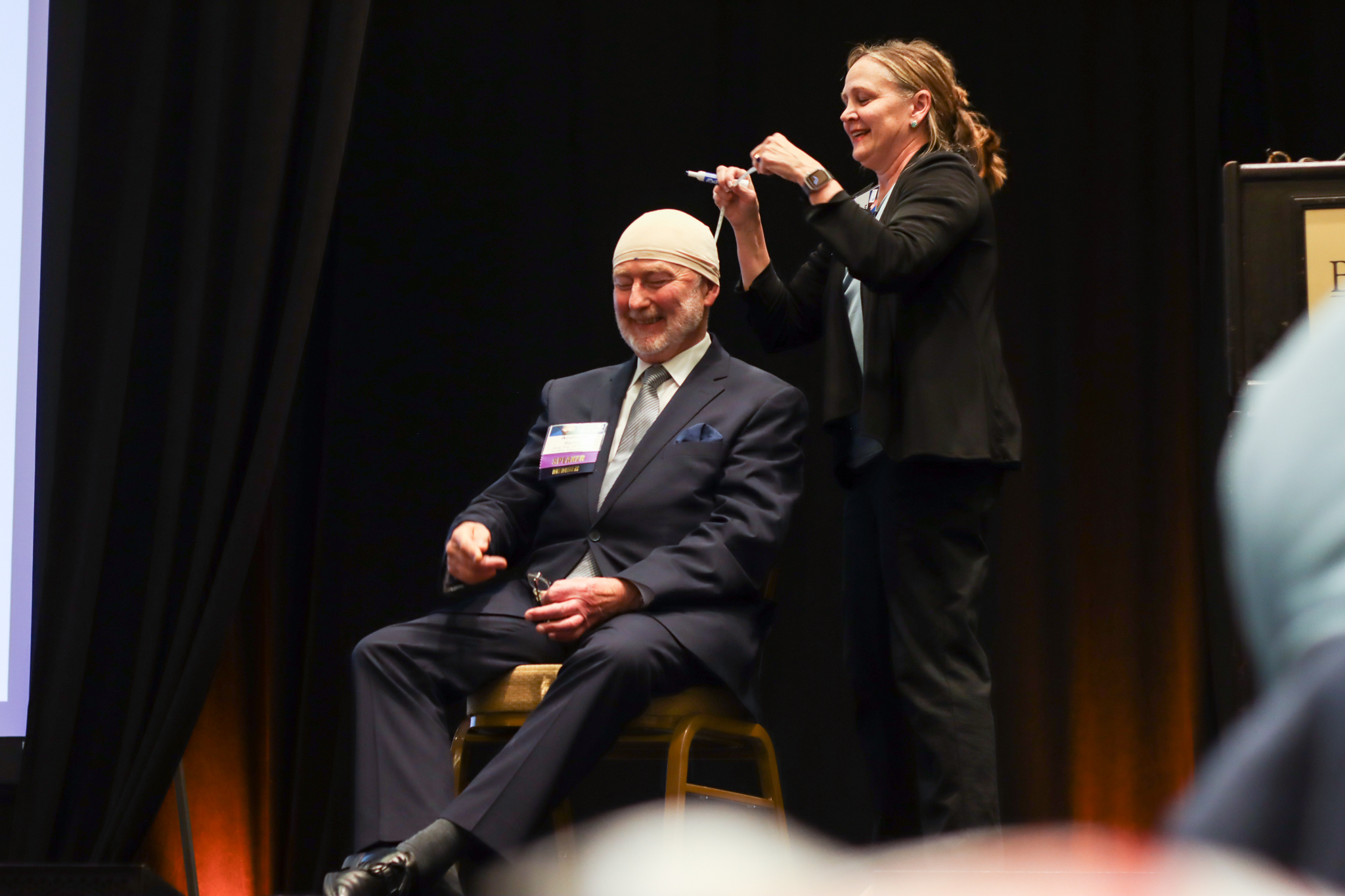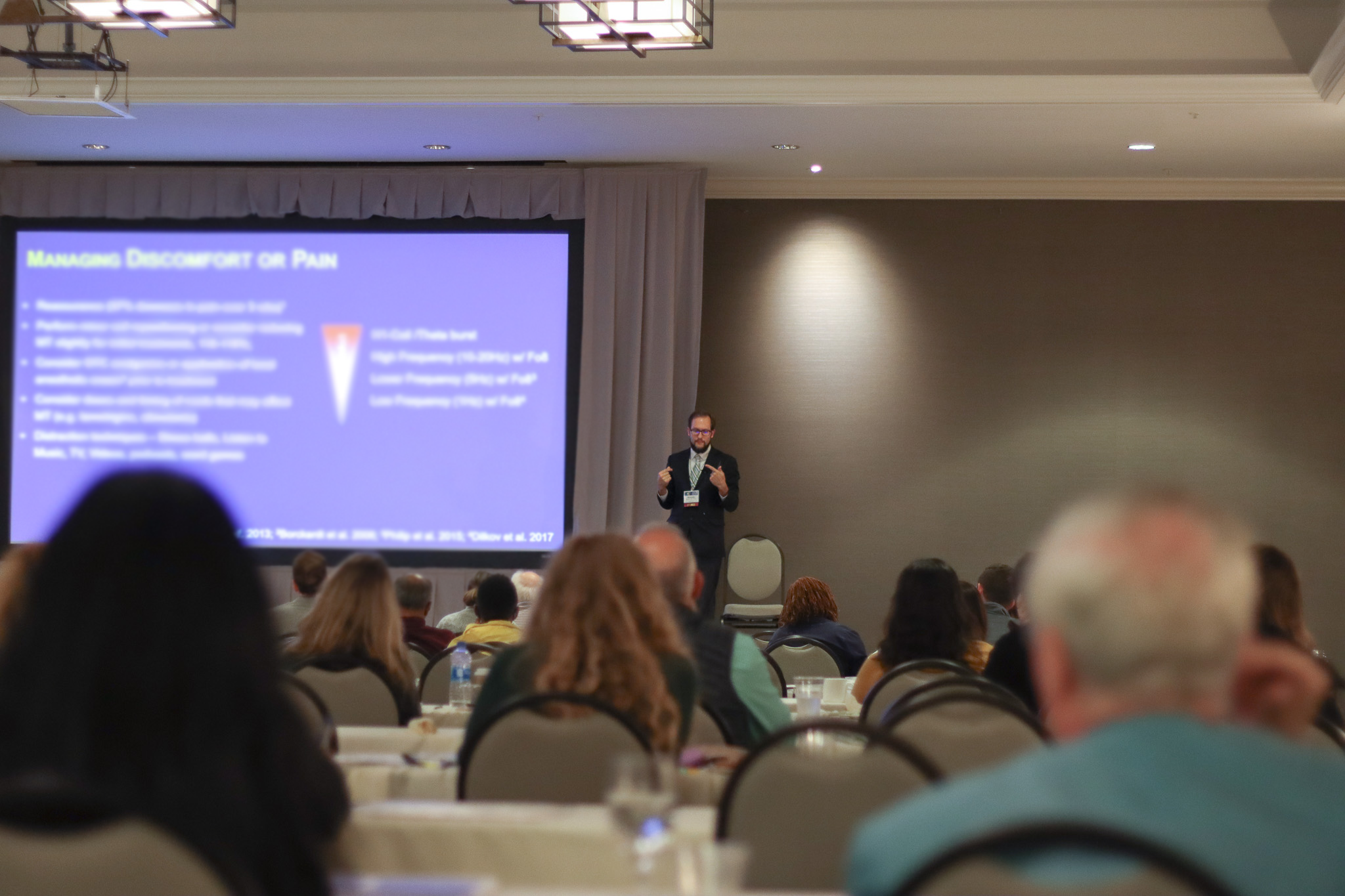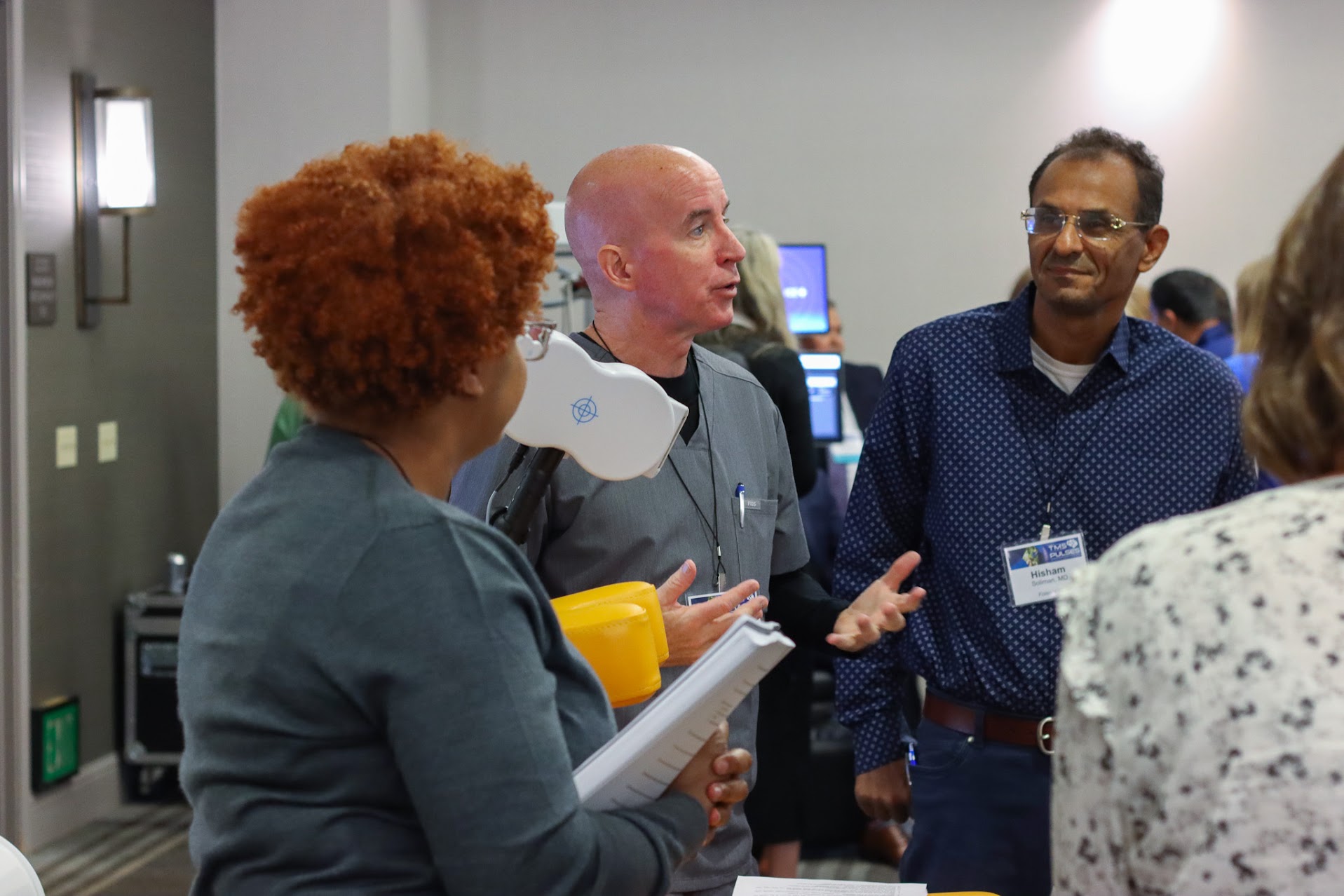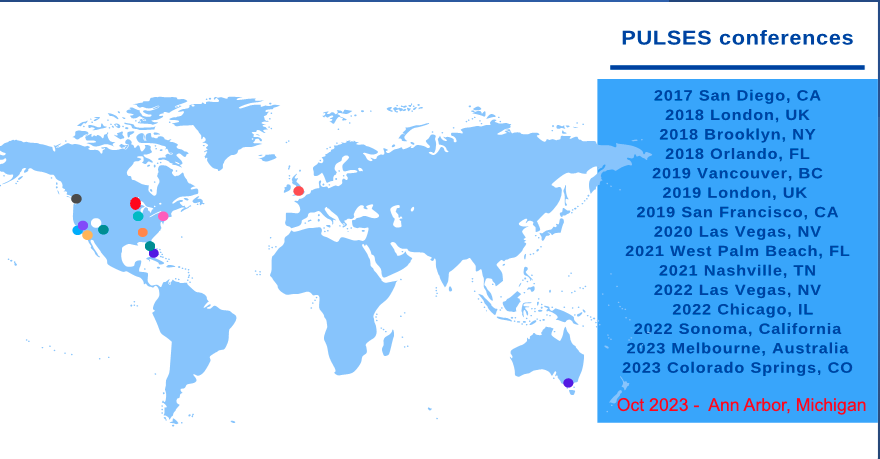Tue, 08/15/2023 - 09:01




Article by Jordan Galerkin - Scientific Writer
Dr. Michelle Cochran has been offering TMS to patients since 2011 and was a founding member of the Clinical TMS Society. She attended the University of Louisville School of Medicine and completed her residency in psychiatry at Vanderbilt University Medical Center. Dr. Cochran is the Chief Medical Officer of the NeuroScience & TMS Treatment Center in Nashville, Tennessee. She served as the Clinical TMS Society (CTMSS) President for the 2017-2018 year, is an inaugural Fellow of CTMSS Society, a distinguished life fellow of the American Psychiatric Association, the ACROSS representative to the APA, the APA’s chair of the Caucus on Neuromodulation and the CTMSS’s PULSES course director.
“I saw [TMS] as a new emerging field that I wanted to be involved in [and] I attended the first annual CTMSS meeting and have stayed very involved [with the Society] since that time,” Dr. Cochran says. “I think I’ve been on every committee at some point,” she says with a laugh, “but now [I’m on] just PULSES and the Annual Meeting committee.” It was during her time as Vice President during the 2016-2017 year that she developed the idea for a TMS training course, known as PULSES.
History of PULSES
“I wanted to start a course because there weren’t many. There were some university-based courses, but I had been to them all. I had attended Rich Bermudes & Karl Lanocha’s course which they developed [for their practice], and I went to every device company’s course [live or online],” she explains. “I helped out in the early days with a course the APA ran, and then actually spoke for Neuronetics in the early years.” However, Dr. Cochran felt that there wasn’t a comprehensive, accessible, and regular course option for prescribing clinicians who wanted to learn about TMS.
“We started with a one-day course. Suzanne Kearns was part of the original faculty and my co-chair on the Education Committee at the time...[Suzanne] jokes that she just went along for the ride that I had in my head, but the reality was that the early faculty were integral in the development,” Dr. Cochran laughs. The first faculty alongside Dr. Cochran were Dr. Linda Carpenter, Dr. Kimberly Cress, Dr. Richard Pitch, Dr. Suzanne Kerns, Dr. Max Okasha, Dr. Kevin Kinback, and Dr. David Fiefel. “We did another course about six months later when I was President of the Society. Then we began hosting wherever our annual meeting was occurring,” she explains. “We added the engineer responsible for the TMS device technology, Professor Anthony Barker as a guest speaker and have managed to draft him as a full time PULSES faculty member.”
“It has been a joy to get to work with Tony and the core faculty that has evolved from the very beginning.” The Colorado Springs PULSES took place in May prior to the annual meeting, and the sixteenth course will be held in Ann Arbor, Michigan this October. “Typically, the Society tries to put on three PULSES courses per year, but the Board challenged the group to add more courses, so we added more faculty this spring. We also try to bring in guest speakers, like Dr. Mark George, who have had a significant impact on the field of TMS since its inception,” Dr. Cochran says.
“We’ve had four international courses; two in London, one in Vancouver, and one in Australia,” Dr. Cochran says. “We see PULSES as three-pronged. One, it fulfills the mission of the Society, two, it builds membership, and three it makes money for the Society,” she explains. “We are constantly tweaking it to see how we can make it better. No two courses were the same. They always get better, and we always take everyone’s feedback,” she says. “I appreciate honest feedback and criticism and when people give it, I and the group usually take it to heart and try to figure out a way to make the course better.”
PULSES has evolved over the years. During COVID, an online introductory CME course called CTMSS On Demand was established. “We made a sort of mini PULSES,” Dr. Cochran says. The virtual version is an abbreviated version of the in-person course. “The PULSES course is typically 14 to 16 hours’ worth of CME, and we didn’t think anybody would want to do that much virtually. And we couldn’t replicate the huge hands-on part [to PULSES],” she explains.
As the course has grown, so has the workload for PULSES. Dr. Abdelghani established Dr. Cochran as an official director of the course with a paid stipend during his presidency last year. Dr. Cochran acknowledges that while it is a lot of work, it is worth it to her. “It’s a labor of love at this point,” she says with a smile. “I also feel like it is the right thing to do…it is helping prescribing clinicians get all the right information from the very beginning. I wish I would have started in 2011 with all this information!”
PULSES Australia
The PULSES courses are a collaborative effort within Society, and this is especially true for the international courses. PULSES Australia was held in Melbourne in February 2023. International courses are really driven by Society members from different countries around the world. The first international course was held in London and championed by former president Dr. Abdelghani, who lives in London. “He got involved and [together] we did all the leg work to try and find out how to offer the material, where to do it, and how to adapt the course for the UK, because not everybody practices the same way we do in the States,” Dr. Cochran explains.
International courses need to follow local guidelines and rules for how medicine is practiced. “[For Australia], we had to figure out what we need to do, because they do not have [TMS] technicians like we do in the U.S., they have nurses instead,” she explains. “Dr Samir Ibrahim wanted to bring a course to Australia, and so he was the ‘man on the ground,’ so to speak.” Dr. Samir Ibrahim is the current co-chair of the Membership Committee and lives in Melbourne. “Samir and I spent many hours working through the options for the course, and identified other Australian clinicians who were appropriate faculty.”
PULSES Australia faced some typical and not-so-typical challenges of putting on a CME course. “We learned a few things about advertising, and a lot about outside certifying bodies” Dr. Cochran says. “We learn a little bit every time we host a course.” There were also two faculty members who learned they could not attend just six weeks prior to the course. “I will tell you, after having fifteen courses, this happens.” The PULSES team came prepared: “We have what we call ‘travel understudies’, and we have partners early on. If something happens with the initial faculty member, the partner can step in. Or, if something happens within a few weeks of traveling, the travel understudy steps in,” Dr. Cochran says. “That’s the hardest job, because you have to be willing and ready to step into anybody’s lecture.” The partners work with the current speakers to help edit presentations and become travel understudies for the future.
The speakers for PULSES Australia were Dr. Anthony Barker, Dr. Mark Goerge, Dr. Leo Chen, Dr. Samir Ibrahim, Dr. Mohamed Abdelghani, Dr. Kimberly Cress, Dr. Richard Pitch, Dr. Todd Hutton, Dr. Nicholas Mischel, Dr. Suzanne Kearns, and Dr. Michelle Cochran. “We have a core group of people who volunteer their time…but we also try to rotate new people through.” Dr. Cochran says. “It’s a fun, dynamic group…and most importantly helps the society fulfill its mission.”
PULSE Today and Tomorrow
There is a dedicated process to becoming a PULSES faculty member. New speakers are first asked to attend monthly committee meetings and participate in a PULSES course as a learner and editor. “Then once they understand how we are doing things, they help with editing [presentations], and then they may become a travel understudy. Later, if participation is good, they will be asked to speak. It is usually a cycle of approximately three courses once they participate in before they become a speaker,” Dr. Cochran explains.
The PULSES team is always searching for new places to host the course. The U.S. courses had been concentrated on the East and West Coast prior to this year’s Colorado Springs course. “Our hope is to eventually hit every continent (except Antarctica) and find areas where there is a need.” In 2024, courses are planned for Orlando, Florida and London, UK. Planning is also underway to host courses in Sao Paulo, Brazil, Singapore City, Singapore, Kansas City, Missouri and Scottsdale, Arizona.
“Wherever we host a course, we’ll get a lot of people from that area, and a lot of trainees.” The Society typically offers ten scholarships for each course. “I think it was about the third course that we started offering scholarships,” Dr. Cochran says. There is an application process followed by a selection committee to award these scholarships. “We look at how much training someone has had and what their potential impact is for prescribing [TMS],” she explains. “I’ve met every one of the scholarship attendees, and they’re just amazing people.” Dr. Cochran also hopes to work with the new FACTMS foundation to provide even more scholarships. “The Foundation is going to work in tandem with us to consider awarding scholarships for people in early private practice or international practitioners who want to attend but cannot afford the travel expenses,” she explains.
PULSES caters to a variety of practitioners. “About two-thirds are doctors or nurse practitioners who are considering getting a [TMS] device. Then you have another third who are technicians or operators from offices. We personally have sent many of our technicians to PULSES,” Dr. Cochran says. “We just feel like it’s the best training we could give for our staff. PULSES has reduced the course cost for offices so that any doctor or nurse practitioner who is prescribing TMS can send their staff, and we believe that folks should,” she explains. “Curiously, despite the course being developed as an introductory course, in every group, we have approximately ten people who have been doing TMS for a while, and I’m always interested to hear why they come,” she says. “We have one gentleman who has attended four times, and I asked why he keeps coming back. And he said, ‘because you teach me something new every time.’”
Dr. Cochran continues to believe in the importance of the PULSES course, the Annual Meeting, and the mission of the Society as a whole. “PULSES and the Annual Meeting continue to be at the forefront of fulfilling society’s mission,” she says. “It’s been really nice to be a part of that, I am honored to have been appointed as the PULSES director and I plan to keep moving the course forward, to help get more members, and to advocate for prescribing clinicians to have the best training so they can offer the best care for patients.”
If you are interested in attending any of our upcoming PULSES Courses, CLICK HERE